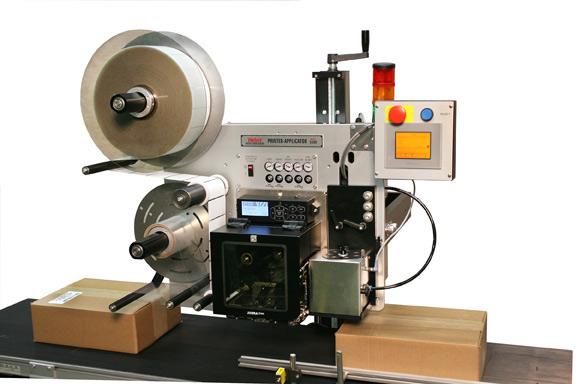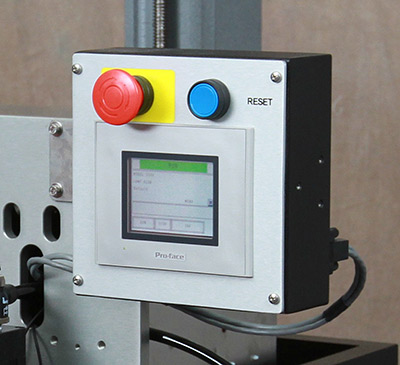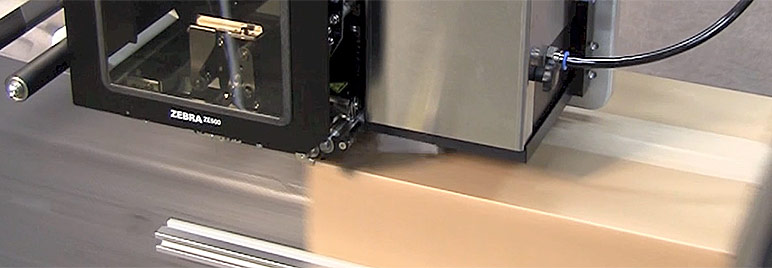5300 Air-Blow Label Printer Applicator
 Weber's Model 5300 air-blow module provides an accurate, versatile means of pressure-sensitive label printing and non-contact application.
Weber's Model 5300 air-blow module provides an accurate, versatile means of pressure-sensitive label printing and non-contact application.
In addition to offering a broad selection of high-quality print engines that feature various print resolutions and label dispensing rates, this Model 5300 system is available with optional RFID print-encode engines.
Standard direct- and thermal-transfer print engines from manufacturers Zebra, SATO and Datamax produce text, bar codes and graphic images at 203, 300 or 600 dpi. The Zebra-based RFID models combine these printing capabilities with the encoding and verification of RFID inlays to meet EPC Gen 2 protocols
Special Features & Options
The Model 5300 air-blow system includes a number of noteworthy features that add to the operational versatility of this printer-applicator.
• Air-blow application. This is method of air-assisted, fixed-distance label placement can be used with standard applications. A printed label is fed into place and held by vacuum, then it is blown onto a product or package to a placement accuracy of ±0.03".
 Model 5300 controller
Model 5300 controller
• Browser-based monitoring. The status of all operational functions and configurations can be monitored by logging on to a web page that is unique to each Model 5300 unit.
• Numerous I/O's. The system can be interfaced with many types of external devices.
• One-to-one media consumption. Special label unwind and rewind dimensions are matched to the system's ribbon supply to ensure they are consumed at the same rate, reducing downtime and eliminating partial changeovers.
• Print job storage. Multiple label printing formats can be stored in the system's memory, making it easier for an operator to select a job directly from the applicator instead of downloading a computer file.
The Model 5300 air-blow system boasts numerous additional features as well, including an upgradeable microprocessor controller, various inputs/outputs, plus durable construction that will withstand harsh industrial environments.
There also are several optional enhancements that can increase the system's functionality. A product height sensor, for example, enables the printer-applicator to label items of varying heights delivered by the same conveyor.
Other options include a 15-foot umbilical connection that enables the remote location of the unit's controller; an adjustable stand for optimum system orientation; label-on-pad and product-presence sensors; plus beacon light alerts to signal the status of label and ribbon supplies.







